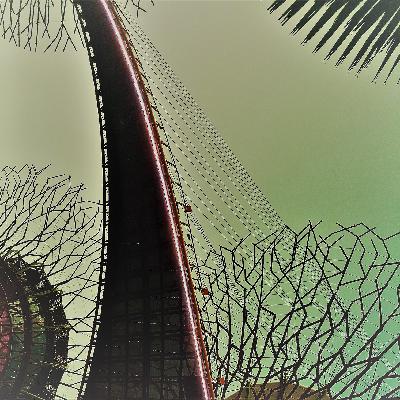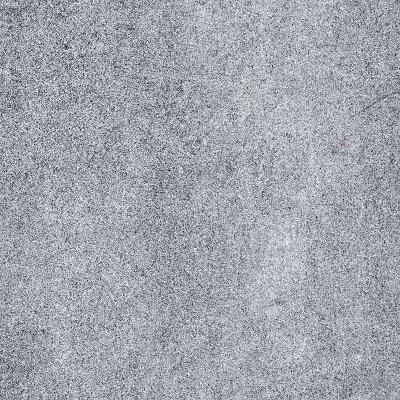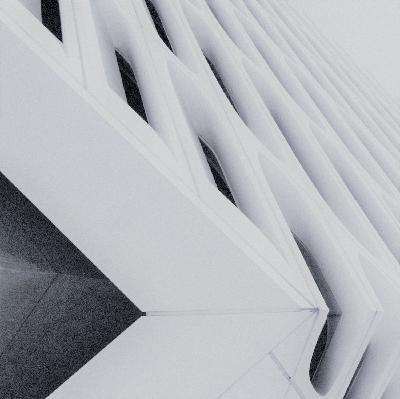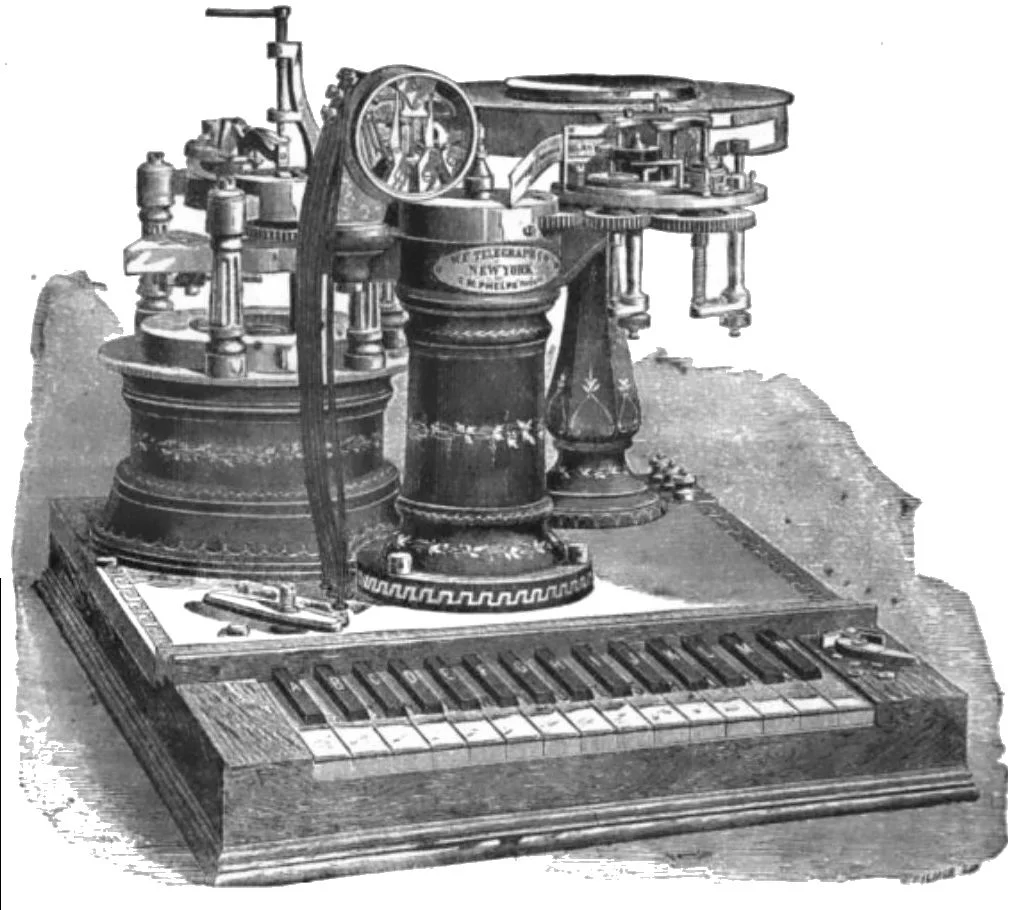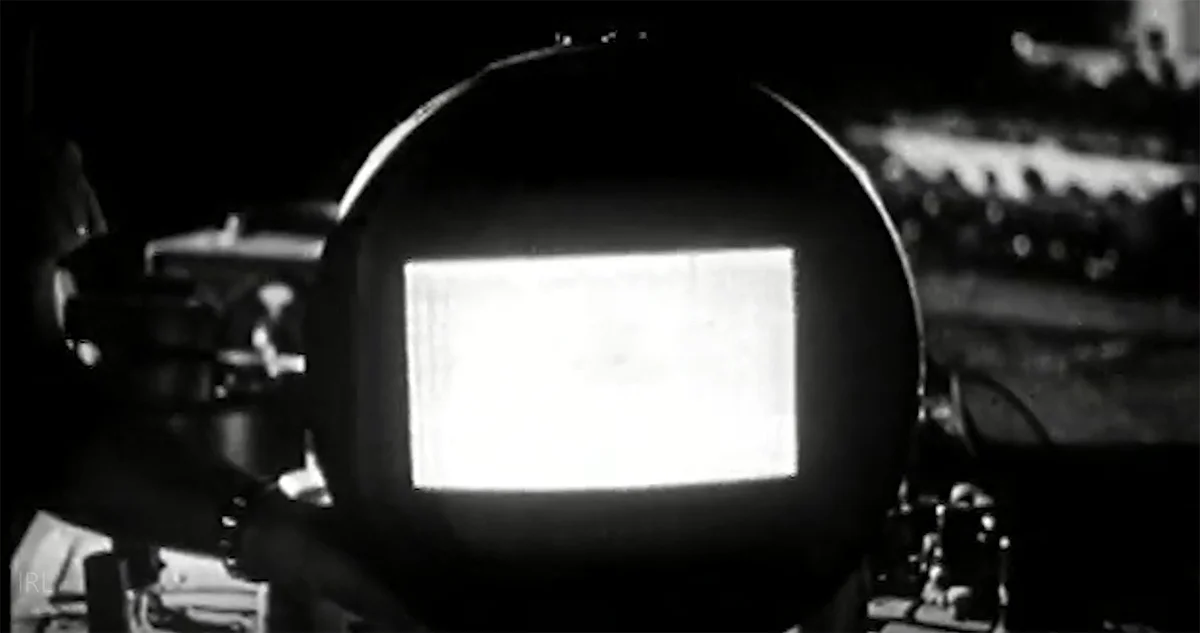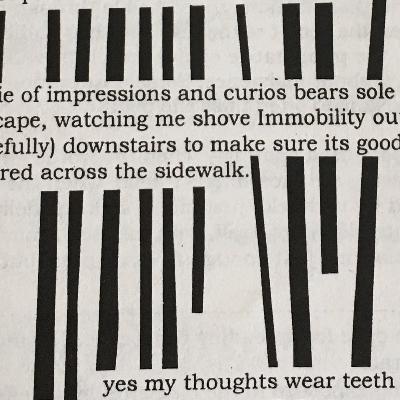Samples from Anodyne - "I trust in the lapse of time solidifies..."
Description
sqs-block-image-figure
intrinsic
">
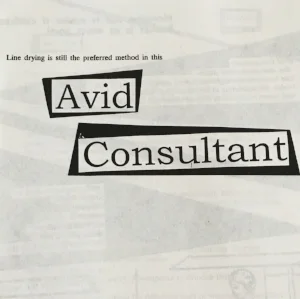
</figure>
op·tics
ˈäptiks/
properties of transmission and deflection.
2.
the way in which an event or course of action is perceived by the public.
"the issue itself is secondary"
Tape Extracts:
Garrett Tiedemann: The last Avid Consultant came a year ago. I trust in the lapse of time solidifies. This one is her reliance. The last traces of recumbent hesitance. The directions in this issue of Avid Consultant have been gathering in my car, in my mind, for an unknown amount of time.
Garrett (on phone): The sensations influence aesthetic choices and creativity. They all, at least for me, they all elicit an idea. Whether it be audio or visual that starts to frame your understanding of the moment that is much more nostalgic and poetic than maybe it actually was. But, it doesn't negate what it actually was. It's just that it's there's so many things constructed into the recollection.
Tania Ketenjian: To why did I want to be part of it was because I thought OK. I mean, I've told Julie this story several times. One day I was actually for Weekend America, way back when like 12 years ago, I was gathering vox in front of this cafe here in San Francisco. And I I start talking to someone and they were like oh do you know do you know do you know Julie, she's in radio? And I was like, yeah I do. He said, YOU KNOW HERE? OH MY GOD SHE'S AMAZING. I LOVE HERE. And he was just crazy about her.
And I remember, and he's this guy named Chicken John and he wanted to be a mayor of San Francisco, he's a real character. And it made me realize wow, I mean like the circle that Julie runs in like the various circles that she runs and are fascinating. And I want to be part of that. And I think you know I think that sometimes we, you know we do all these different things to befriend or even deepen a friendship or even any sort of connection that's there. And you know, Julie I may not talk at all unless we see each other at a conference. We may not know about each other's lives necessarily, but we are connected in a way and I value that connection and an opportunity to deepen that, even if it's just by sending in a Shel Silverstein poem is exciting to me.
Garrett: The dictionary at my elbow, a different sort of weapon consulted regularly, confirms the suspicion regarding a slow leak in spelling skills, which has led to a fascination with words misspelled versus words miss typed versus words misbolded.
Biding time.
Is atrophy audible?
Let's try that again.
Miyuki Jokiranta: I'm apparently in a soundproof booth Garrett, but there are people outside and I fear you might get some bleed so. I'm sorry if that's the case. OK.
Julie Shapiro: I think I would sit down and kind of you know start very very in the moment and spiral out from there when I was writing so I can imagine things like well it's 2:00 a.m. in the morning I'm trying to finish this up and so this you know excuse this intro for whatever reasons. And that might just have been an anchor anchoring me into a mindset for writing more about things. I mean a lot of those early issues are also, that's all handwritten. So, it might have just been stream of conscious in the moment you know not really pre-written and edited and reshaped and reformatted just a total brain dump in the moment and that's probably when I would be most susceptible to describing what I was doing and where I was and why. Why the circumstances,if I was on the road like the New Zealand. Now switching to Avid Consultant, the New Zealand issue was really circumstantial. It was, to a play on words would be, it was it was quite the Anodyne to my situation, which was I had developed a stress fracture while backpacking around New Zealand and needed a project to keep me occupied and so I did an issue of Avid Consultant. You know that sort of got it started while I was laid up on somebody's couch in Dunedin and then you know sort of brought that process as closely as I could to my New Zealand experience, which involved being in the Wellington public library. I remember that the kind of trope for that whole issue was washing, putting clothes out on a clothes line and washing things because I found a kind of funny manual on that that visually was you know kind of stimulated some ideas about, to play with I guess. But yes, that was very circumstantial and I think you get a lot of that like what was going on and the mechanics of how that one came together actually in the text.
Garrett (on phone): Yeah, I'm holding that edition.
Garrett: Two pieces of advice. Never make any big life decisions in your 20s that concern another person. You can't hold the baby too much.
Garrett (on phone): Is there a gap between Anodyne and Avid Consultant or did you just kind of change gears?
Julie: They overlap and I think I just, you know after 10 or 11 issues I was ready for something a little different.
[Intro Break]
Garrett: Samples from Avid Consultant. Do you know how to find your way?
Six. So the search continues. Direction is always sought even as we stand still, content. How to get there, the destination itself is barely relevant. A travel partner must want to play travel games and like to hear women singing the blues and Sonic Youth.
Angeline Gragásin: I mean I think what. What was engaging was the fact that it's a game and I have you know I haven't played a game like this since I was a kid. I haven't done a chain letter or I mean I barely send things through the mail anymore. Well, actually I think I started sending postcards again maybe around the time that I...I think that's true. I think that may be true.
Garrett (on phone): That's interesting.
Angeline: Yeah, because I was like oh that's pretty easy. That was pretty easy I could just buy a whole box of postcards. Yeah, I actually I think, you know what, I think that might have been what inspired me to start doing that. Yeah.
Garrett (on phone): And then are you keeping them strictly like, what's done of the postcard gets mailed and you're not taking an image to remember it or post it anywhere? Is it really sort of kept to the material thing?
Angeline: Yeah. I'm not documenting it and I'm not, there's no project dimension. It's not a project it's actually just thank you letters to friends.
Allyson McCabe: But, I think that's probably a generational perspective to some extent to feel that anything that's physical feels a little bit more real a little less ephemeral.
Julie: And I felt like that Avid Consultant was going to be more of a writing project and I wanted to simplify actually. I remember thinking like this one will be simpler, it won't rely on other people's input because you know I'd always have to wait for these signs to come back. Which wasn't a bad thing, it just created its own rhythm, that I was dependent on other people to finish an issue and get it out with Anodyne. And Avid Consultant was just just my stuff. Possibly to a problematic extent, but who knows.
In reading back through I sort of had this horrifying conclusion like oh my god I was kind of writing poetry and it's really...horrifying is the wrong word. But I never thought of it as like, you know, a poetry project at all, but I could see that I was grasping to have some formality and metaphor and rhythm in a way that wasn't just like you know a journal spill. It was like a very distilled sense of what the journal spill would have been in a much more, presented in a much more sort of fake, casual, formal sense to some degree.
Allyson: But, you know, zines in general they were meant to be ephemeral. Now we have zine libraries, there's many different archives for zines. Some are online but some of them are physical, attached to libraries like for example Washington D.C. has a whole the whole punk archive to itself as part of the Washington DC library. Others are attached to universities like Barnard has one. I believe University of Maryland has one. I'm sure there are many many others, but they weren't intended to be kept forever. They ended up being kept forever because people started to see the value in them. I think more than maybe some of the makers did at the time when they were first distributed.
Unknown Woman (archive tape): Those of us interested in innovated forms of zine archiving must find a way around the limited to digitize or not to digitize argument that to me seems to dominate many conversations of digital zine preservation. We need interactive ways to display interface with zines that offer new engagements with their multiple materialities and contested histories. Fortunately sub-cultural archival practices already exist that can tell us what zinesters want for and from their archives. Practices that in theory can also benefit the zine researchers and librarians who are interested in the thriving social worlds that cluster around these vibrant, queer little booklets and this notion of a perverse materiality that was brought up is


